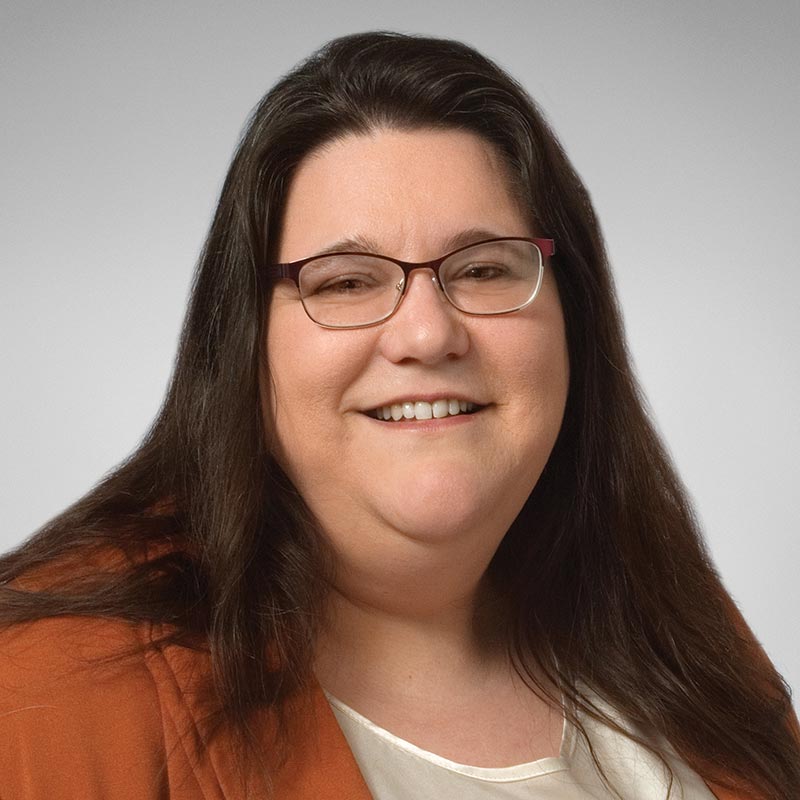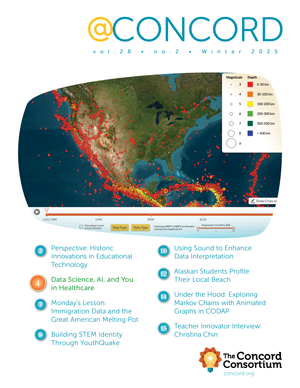News at Concord Consortium
The Concord Consortium is spearheading the field of data science education. The following initiatives are preparing learners with the skills of data analysis so they are ready for future data science occupations.
Robert F. Tinker Fellow: Amy Hammett

Our first Tinker Fellow recipient, Amy Hammett, joins our Emeryville office this summer to work on ready-to-use, place-based instructional materials for teachers and students to develop data science skills using accessible tools. Amy currently collaborates with the National Science Foundation’s Established Program to Stimulate Competitive Research (EPSCoR) on place-based problems. She describes their primary data as “gold for educators and students because it allows us entry into the adventurous world of real science—discovering that which is not yet known!”
She has also created exemplars for Achieve’s Task Annotation Project in Science and piloted a unit under development for the Next Generation Science Exemplar team. She says, “Data science education can extend that work by having students and teachers use technological tools to uncover that which is unknown and hidden in big data, to computationally model those phenomena or systems, and to use the resulting model’s predictive power to inform the design of solutions to complex, real-world problems.” Amy is beginning a doctorate at Kansas State University in Curriculum and Instruction with an emphasis in Data Science Education in fall 2019.
Writing Data Stories
We’re delighted to partner with the University of California Berkeley School of Education on a new grant from the National Science Foundation. “Writing Data Stories: Integrating Computational Data Investigations into the Middle School Science Classroom” integrates computational data analysis into the middle school science curriculum. Using our Common Online Data Analysis Platform (CODAP), students analyze public scientific datasets. Units designed with Dual Language Learners (DLL) in mind help students share their investigations through writing that blends familiar and academic modes of expression. Participants include 20 teachers and approximately 2,500 students from predominantly high needs schools in the San Francisco Bay Area.
Project research asks: How do students learn, over time, to use computational tools to structure, calculate, filter, and transform data for scientific inquiry? What patterns of engagement in scientific practices are supported by the integration of computational data analysis and visualizations into the science curriculum? What new literacy practices support DLL and learners with limited access to technology in constructing oral and written arguments and explanations using data and visualizations as evidence?
Designing 2030: Thinking and Doing with Data
In January 2019, we hosted Designing 2030: Thinking & Doing with Data at the Gordon and Betty Moore Foundation to dive into questions around data and data fluency. Experts in data science education, data literacy, and citizen science from the Concord Consortium, BSCS Science Learning, the Gulf of Maine Research Institute, TERC, National Geographic Education, Nexmap, iNaturalist, University of California Berkeley, University of California Davis, and others envisioned the data-rich world of the future with the goal of designing learning experiences where students think, interact, and take action with data.
Concord Consortium President Chad Dorsey initiated the call for a “messy data” coalition and argued on behalf of messy data as a pedagogical context for developing data fluency and our future reality. Shannon Dosenmagen from Public Lab described how the BP oil spill of 2010 prompted her to organize communities to participate in environmental monitoring and activism. Lissa Soep from YR Media illustrated social media contexts for youth learning and empowerment in data-driven storytelling.
The Designing 2030 initiative is researching ways to support data fluency and designing tools and applications to support open data exploration, platform interoperability, and educational technologies.
